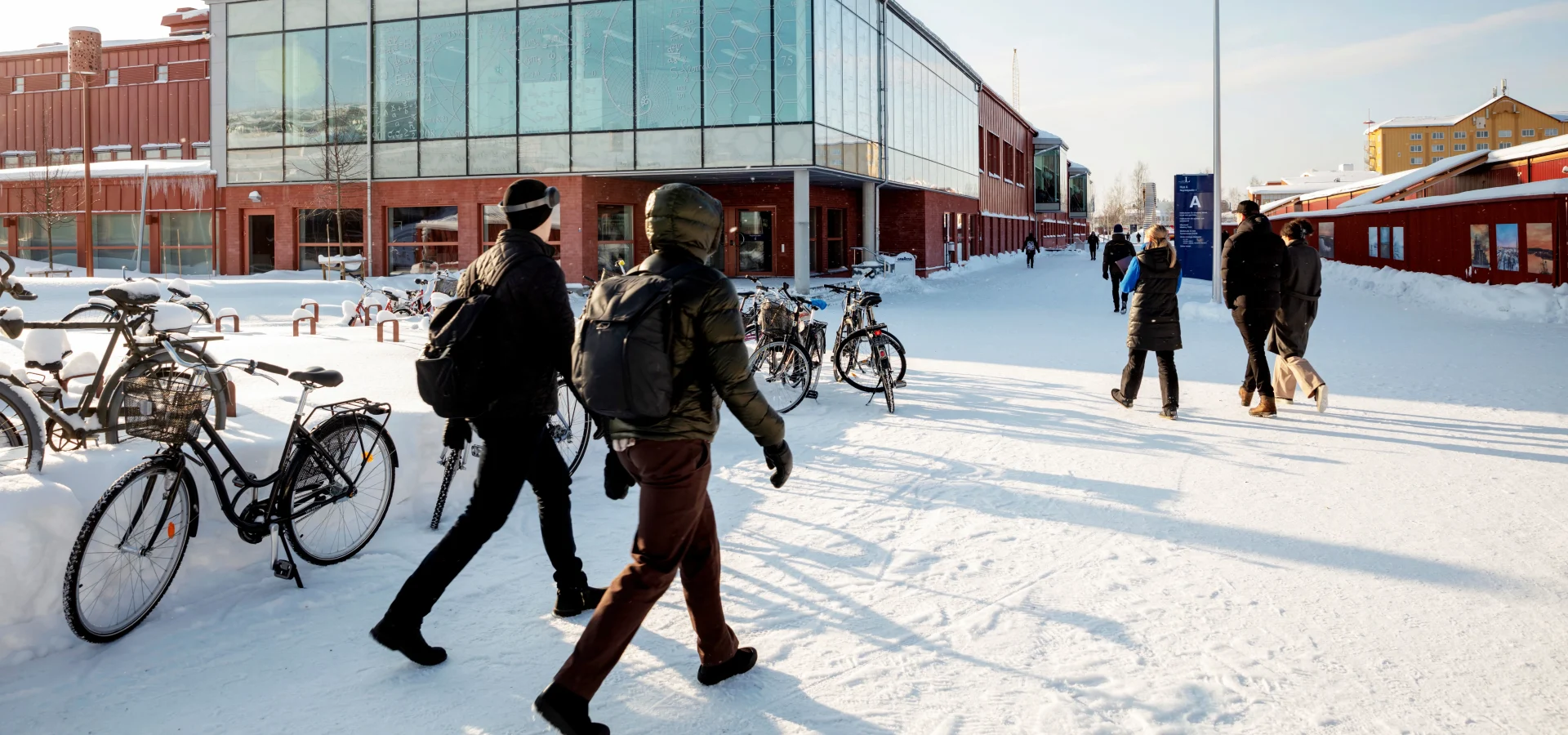
Type of Employment Full-time
Job position Research assistant
Work model On location
Application due date 31 July 2025
Postdoctoral fellow in robotics and artificial intelligence WASP
Luleå, Sverige
Type of Employment Full-time
Job position Research assistant
Work model On location
Application due date 31 July 2025
Are you the one?
Luleå University of Technology is growing rapidly with world-leading expertise in several research areas. We shape the future through innovative education and groundbreaking research results, and based on the Arctic region, we create global social benefits. Our scientific and artistic research and education are conducted in close collaboration with international, national and regional companies, public actors and leading universities. Luleå University of Technology has a total turnover of almost SEK 2.1 billion per year. We are currently 1,900 employees and have 18,700 students.
In the coming years, billions of kronor will be invested in Norrbotten and Västerbotten in major projects aimed at a more sustainable society nationally as well as globally. Luleå University of Technology is involved in several of these highly topical research projects and the social transformation that follows. We have a wide range of programs to match the skills that are in demand. We hope you will help us build the sustainable companies and societies of the future.
We are looking for a Postdoctoral Researcher in Robotics and Artificial Intelligence (RAI) (https://www.fieldrobotics.eu/) at the Department of Computer Science, Electrical and Space Engineering as part of the national research program WASP.
The Wallenberg AI, Autonomous Systems and Software Program, WASP, is Sweden's largest single research program in modern times. The program creates a platform for academic research and education in close collaboration with leading Swedish technology-intensive industry. The research includes artificial intelligence and autonomous systems that work in collaboration with humans and adapt to their environment using sensors, information and knowledge, creating intelligent systems of systems. WASP's vision is excellent research and competence in artificial intelligence, autonomous systems and software for the benefit of Sweden's industry and society. Read more: https://wasp-sweden.org/
You will be part of the research group for robotics and artificial intelligence. For more information. You will have the opportunity to collaborate with the strong interdisciplinary and international professional network between researchers and industry connected to WASP.
Subject description
Robotics and Artificial Intelligence aims to develop new robotic systems characterized by advanced autonomy to improve the ability of robots to interact with the environment and humans during the performance of specific tasks.
Project description
Characteristic research areas will focus on the following key areas
Collaborative intelligent autonomy
- Predictive collaboration in shared workspaces
- Distributed task and motion planning
- LLMs and VLMs for high-level planning and situational awareness
Autonomy for modular and soft robots
- Reconfigurable morphogenesis
- Self-assembling, terrain adaptive locomotion
- Embedded sensor technology, soft actuation
Collaborative sensing, perception and localization
- Robust sensing in perception-impaired environments
- Cognitive perception, semantic reasoning
Duties and responsibilities
The tasks of a postdoctoral researcher mainly involve research. You will conduct research with significant experimental components that should be published in international, peer-reviewed journals and at major conferences. The position includes supervision of PhD and Master's students, teaching, and support in obtaining funds for future research projects from research funding agencies/councils, EU Framework Programs or industry.
Your qualifications
To be eligible for a postdoctoral position, you must hold a doctoral degree or a foreign degree equivalent to a doctoral degree in automatic control or a related field. A doctoral degree awarded no more than three years before the application deadline provides a useful qualification. Candidates who have been awarded a PhD earlier may also be considered if there are special reasons, such as various types of statutory leave of absence. The research tasks require a solid mathematical background with proven advanced experimental skills and excellent programming skills (e.g. C++, ROS, Matlab, Python, etc.). You should have a strong vision for evaluating and demonstrating the research results under real operating conditions, with an approach to bridge the gap between pure theory and experimental verifications. You will be required to represent the group in different contexts, both in Sweden and abroad, and thus have excellent knowledge of English. Experience in field robotics and real-world experimentation will be highly valued as a merit.
Information to be provided
The position is limited to 2 years.
Place of employment Luleå. Intended start date: October 01, 2025
For further information, you are welcome to contact:
George Nikolakopoulos, Professor and Head of Department, 0920-49 1298, geonik@ltu.se.
Trade union representative:
SACO-S Diana Chroneer, 0920-49 2037 diana.chroneer@ltu.se
OFR-S Lars Frisk, 0920-49 1792 lars.frisk@ltu.se
How to apply
We prefer that you apply for this position by clicking on the application button below. The application should include a CV with a full description of all scientific merits and publications of the candidate, a motivation letter, a research plan describing the research areas, a list of successful research grant applications, a list of 2 persons who can provide recommendations for the candidate, and copies of verified and translated high school and university diplomas. Your application must be written in Swedish or English. Please mark your application with the reference number below.
Deadline for applications: July 31, 2025
Reference number: 2629-2025
